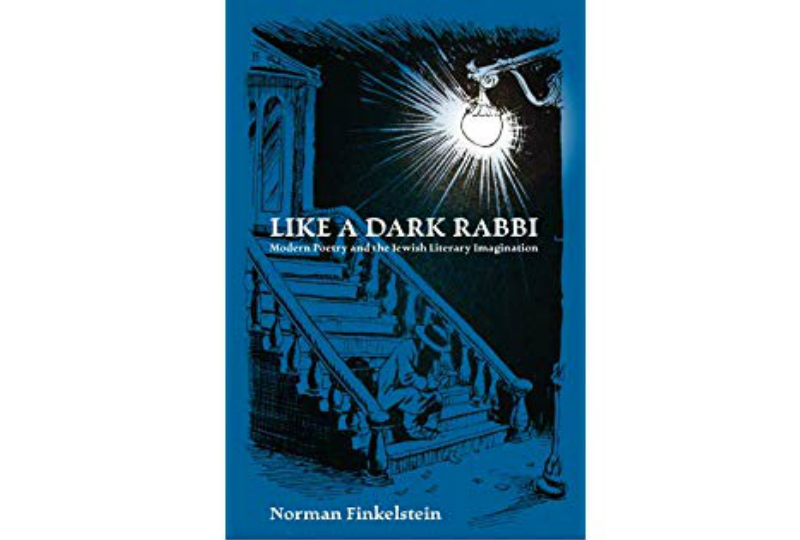Norman Finkelstein begins his book with a tale of two Shapiros, Karl and Harvey. Secular American poets, they distanced themselves from traditional religious Judaism, but culturally and artistically, they kept going back to their biblical roots and mythologies.
“In his 151st Psalm, Karl Shaipro asks: ‘Are you looking for us? We are here. Have you been gathering flowers, Elohim? We are your flowers, we have always been. When will you leave us alone? We are in America.’”
A less conflicted root sorter with a sense of humour, Harvey Shapiro was Finkelstein’s mentor. His “profound insights into American Jewish life” anchors the author’s examination of Jewish poetry in America, and how it informs being Jewish in the largely post-traditional Diaspora.
In his poem, “Book Group,” Shapiro focuses on the event that for many modern Jews operates as a parallel tradition: the Holocaust.
“An entire culture/ was wiped out, leaving only/ the vaudeville Jews of America/ and the critic in the group says/ the theme is survival and/ everyone cries paradox! paradox!”
The existential dilemma of being spiritually and historically stranded, in exile from the source, and the creative energy it generates, is a key element in Finkelstein’s Like A Dark Rabbi: Modern Poetry and the Jewish Literary Imagination. The author, a professor of modern and contemporary American literature at Xavier University in Cincinnati, is himself a poet whose work, he writes, “turns to and turns upon, the matter of modern Jewish identity.”
Dark Rabbi (title comes from a Wallace Stevens poem) comes with a resident ghost, Yiddish. Spoken as children by Harvey Shapiro and Charles Reznikoff, Yiddish, ultimately abandoned for English, was later resurrected in the tonality of their poems. It also flourishes as the language of longing for non-Yiddish speaking poets like Jacqueline Osherow. In Ch’vil Schreiben a Poem auf Yiddish (I want to write a poem in Yiddish), she contemplates a poem so Yiddish, it would not be possible to translate.
Reznikoff, focusing on a shirt gone missing in the laundry, has his laundryman examine all the contradictory possibilities in the Talmudic style before his wife concludes, “We won’t have to go the rabbi about it, will we?”
Son of Russian Jewish immigrants who fled the late-19th century pogroms, Reznikoff, though married to Zionist leader, Marie Syrkin, never visited Israel. While turning often in his work to Biblical and exilic themes, he is best known to many as a poet of the New York street, a walking advertisement for the multi-ethnic wonders and fluidity of the diaspora.
Finkelstein, in the words of scholar Harold Bloom, summarizes Reznikoff as embodying “wandering meaning.” A phrase that could be applied to a whole raft of thoughtful Western Jews.
Dark Rabbi’s richness is the way it contains this multi-dimensional, contradictory, sacred and profane, but always throbbingly alive poetics. It might be likened to a mysterious broad river never content to flow in just one coherent direction.
Writing about feminist Chana Bloch, Finkelstein is struck by the way she dances reproachfully with Jewish tradition as it steps on her feet:
“If the egg had one drop of blood in it/ the rabbis said ‘throw it away!’/ as if they could legislate/ perfection. Dress the bride in/ white petticoats! Let there be/ no spot/ on your ceremony!
Admiring but not uncritical, Finkelstein label’s Bloch’s normal, anecdotal, “emotionally expressive” first person poetry, as “workshop poetry.”
Her antithesis is perhaps Michael Heller. A “philosophical poet,” grandson and great-grandson of two rabbis, his eclecticism is breathtaking. Influenced by Jewish scholars Walter Benjamin and Gershon Scholem, he was also, for a while, a student of Tibetan Buddhist teacher Chogyam Trungpa Rinpoche. His poetry dances with “other selves” and the “masks of selves” in the spirit of Whitman, but also works to find the language to “repair and rebuild” in the spirit of Lurianic Kabbalah:
“Most high, let us walk the ordered esplanade!/ Let us carry high the numerous and the just whirlwinds./ Let us grasp the circle: let us catch the assailing blue.”
Yet Heller could at the same time reflect, “how little words counted against the strange unknowableness of the world.”
Paradox as the dreidel of Jewish displacement.
The ultimate irony of this displacement is to be found in Finkelstein’s study of Buffalo born Israeli poet, Rachel Tzvia Back. An Israeli since the age of twenty-one, Back’s poems about Israel are suitably pained and loving, but written in English.
In the Galilean hills, she writes, “where Hebrew and Arabic are the spoken languages, my English language poetry wanders ever as an outsider. In significant ways, and certainly in connection to my poetry, I reside fully in the paradox of being ever a foreigner at home.”
In his scholarly wanderings, Finkelstein has constructed an exemplary crooked bridge across which Jewish culture and Jewish life merge.
